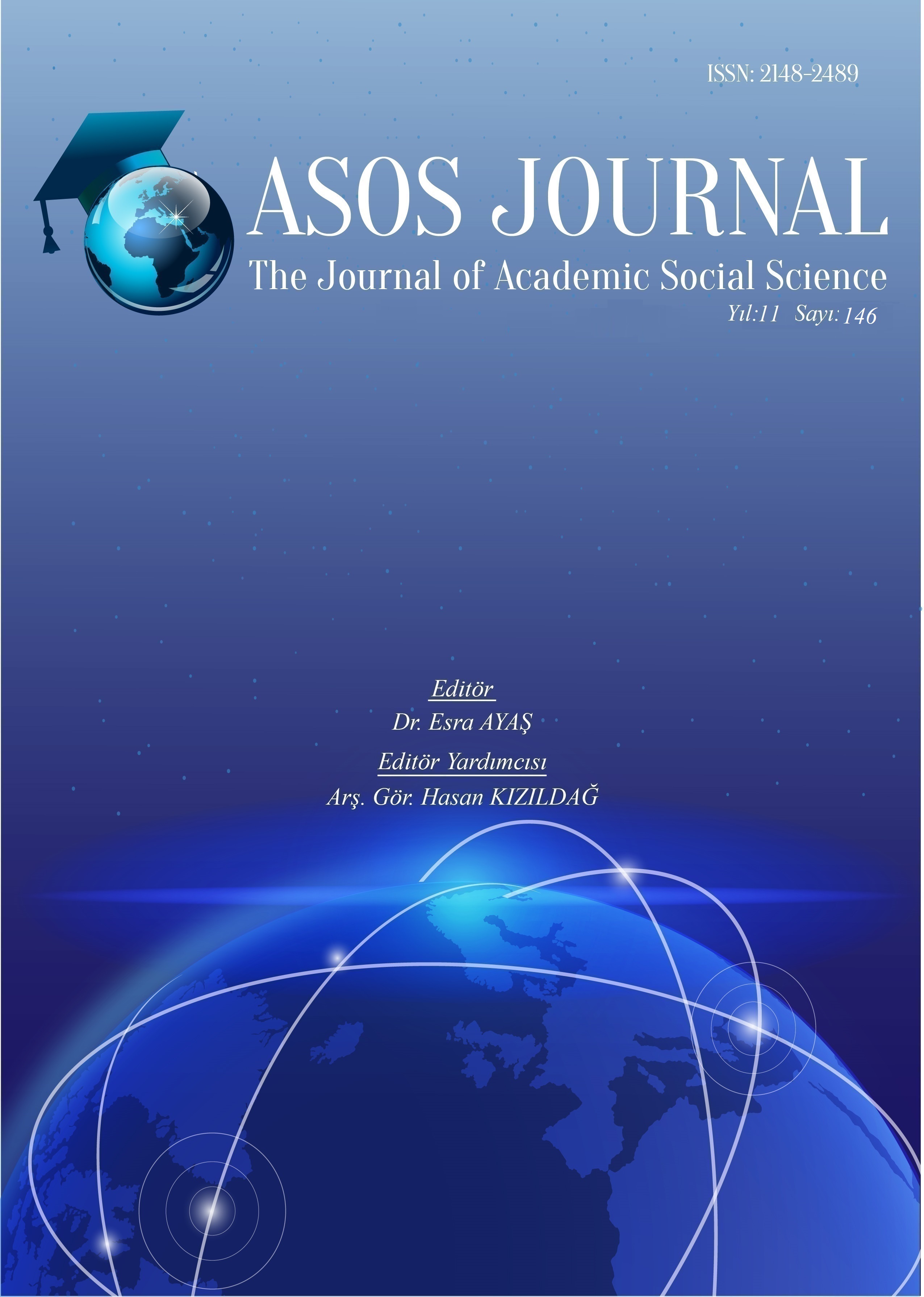Author :
Abstract
İnsanlık tarihiyle yaşıt olarak değerlendirebileceğimiz göç, eylem yönünde mekânsal bir yer değişikliğine indirgenebilmesi mümkün olsa da göçün birey ve toplum temelinde gelişen ve değişen siyasal, ekonomik, sosyolojik ve kültürel tarafları bulunmaktadır. Toplumsal ve kültürel değişimi içeren göç, sadece bir coğrafyadan diğerine geçişi değil, bir toplumdan başka bir topluma geçişi işaret eden bir nüfus hareketidir. Denilebilir ki, kültür kavramı da göç kavramıyla benzer kaderi paylaşan ve insanlık tarihiyle özdeş olan bir toplumsal olgudur. Göçler, temel olarak mevcut olanın yetersiz oluşunda daha iyiye ulaşma umuduyla gerçekleştirilir. Göçle birlikte sabit olma durumu yerini ayrılma, terk etme, kaçma gibi günlük hayatın üretip beslediği duygulara bırakır. Bu duygular, kültürün ana damarlarında geniş yer bulur. Göçün öznesi bireyler, dün gelen, bugün olan ve yarın kalacak olması muhtemel yabancı kimlikleriyle dünya genelinde ve ulus özelinde kültür desenlerinin her daim bir motifi olarak varlığını sürdürecektir. Bu çalışma da göç ve kültür kavramları arasındaki ilişkinin ortaya konulması amaçlanmıştır. Kuramsal literatür tarama yöntemi kullanılarak toplanan veriler bütüncül bakış açısı çerçevesinde yorumlanmıştır. Göç etmiş olmanın yalnızca fiziksel bir yer değişikliği yapmak demek değil, göç ile birlikte pek çok manevi değeri de taşımak demek varsayımında göç ve kültür ilişkisini değerlendirildiğimizde yüzyıllar boyunca göçler ile birlikte kültür değerlerinin de göç etmekte olduğu bulgusuna ulaşılmıştır.
Keywords
Abstract
Although migration, which we can consider as coeval with human history, can be reduced to a spatial change of location in the direction of action, migration has political, economic, sociological and cultural aspects that develop and change on the basis of the individual and society. Migration, which involves social and cultural change, is a population movement that indicates not only the transition from one geography to another, but also the transition from one society to another. It can be said that the concept of culture is a social phenomenon that shares a similar fate with the concept of migration and is identical with human history. Migrations are basically carried out with the hope of achieving better when the existing one is inadequate. With migration, the state of stability is replaced by emotions produced and nurtured by daily life, such as separation, abandonment, and escape. These emotions find a wide place in the main veins of culture. Individuals who are the subject of migration will always continue to exist as a motif of cultural patterns worldwide and nationally, with their foreign identities that came yesterday, are today, and will likely remain tomorrow. This study aims to reveal the relationship between the concepts of migration and culture. The data collected using the theoretical literature review method was interpreted within the framework of a holistic perspective. When we evaluate the relationship between migration and culture, assuming that migrating does not only mean a physical change of place, but also carries many spiritual values with migration, it has been found that cultural values have also been migrating along with migrations for centuries.





